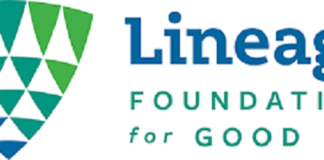
Article sponsored by NSF
By Sarah Krol, Senior Director, Food Supply Chain Solutions, NSF
In the face of cybersecurity threats, inventory shortages and economic instability in 2023, the food industry demonstrated remarkable resilience. As we transition into 2024, some challenges persist, but new trends bring opportunities for growth and innovation. Understand what this means for your business in this Q&A with Sarah Krol, Vice President, Food Supply Chain at NSF, the leading global public health and safety organization.
Q: What were some of the main contributors to the strains in the supply chain this year?
A: The food industry dealt with several challenges that impacted the global supply chain. Despite inflation and navigating a post-pandemic environment, consumer spending remained strong, with more people traveling, dining out, hosting gatherings, and entertaining. The return to office led to increased commuting and in-person shopping and dining, contributing to higher sales, profits, and geographic expansions.
We saw some shifts in trade, specifically in Europe, due to the ongoing war in Ukraine and the Israel-Hamas Conflict. The conflict has made conducting audits more challenging in parts of Egypt, Israel, and other countries with elevated security risks.
Recalls remain high and impact the supply chain, with issues and mistakes with pathogens, allergens, foreign matter, and labeling indicating ongoing production challenges.
Q: How did the food industry navigate these challenges?
A: In recovering from the pandemic, businesses have worked to create a more resilient supply chain to mitigate inventory and labor shortages. Most companies have adopted a “new normal,” tightening their belts since the hiring boom following the end of the pandemic. Leaders have increased investments in the workforce, technology, and infrastructure by reskilling/upskilling, implementing digital transformations and additional resources to form shortened, more regionalized supply chains less susceptible to disruption. Doing so has helped companies become more efficient in managing resources and production, forecasting, and reducing waste.
As international regulations continue to shift and evolve, companies are relying on experts as they navigate the many complexities of these guidelines and requirements, especially when expanding to new geographical markets.
Q: What is the role of food safety in today’s market environment?
A: As an industry, we have a lot of work to do when it comes to widespread, fully adopted food safety. Consumers need to be equipped with the right knowledge to advocate for their health and safety. They need to be better informed, educated and equipped on topics including how to select and purchase the food and beverages they consume and how to handle and prepare food safely.
Businesses, on the other hand, must employ a strong food safety culture at all levels, relying on independent, trusted sources such as NSF to verify safety and claims using respected guidelines, standards, and protocols.
With new regulations on the horizon, the industry is modernizing its approach to protect the US food supply. This year, the Food and Drug Administration (FDA) underwent a massive reorganization to create a proposed unified Human Foods Program under one leader – Deputy Commissioner Jim Jones. The program consolidates several of the FDA’s food safety programs. Jones has identified three priorities: preventing foodborne illness, decreasing diet-related chronic disease through improved nutrition, and safeguarding the food supply through the safe use of chemicals and dietary supplements.
Consumers are increasingly demanding transparency, and businesses are tasked with meeting these demands. As we approach 2024, the industry’s focus on food safety is more critical than ever before.
Q: Sustainability continues to be a buzzword. How will expectations in sustainability impact the food industry in 2024?
A: Sustainability and ESG are no longer just buzzwords; they’re vital practices that lead to the continued success of businesses worldwide. Companies are now held to higher ESG reporting standards. In the European Union (EU), for example, the Corporate Sustainability Reporting Directive (CSRD) will require nearly 50,000 companies to complete mandatory sustainability reporting, including non-EU companies with subsidiaries operating within the EU. ESG reporting today demands greater transparency with an elevated focus on social accountability, from fair-trade practices to anti-slavery guidelines to the protection of worker health, safety, and wellbeing.
In addition to ESG, companies are responding to consumer demands for more sustainable packaging (including eco-friendly, recycled, upcycled, and carbon-neutral materials), as well as limiting the use of harmful ingredients such as PFAS in packaging and food.
Some state-by-state regulations will go into effect in the US, such as regulations on food packaging. In 2024, several states including Colorado, Maryland, and Minnesota will join others in banning the use of per- and polyfluoroalkyl substances (PFAS), known as “forever chemicals,” in food packaging.
Q: 2024 will introduce new regulations such as the Strengthening Organic Enforcement (SOE) Rule in the US. What does this mean for the industry?
A: The SOE Rule will be implemented on March 19 and requires organizations throughout the organic sector to meet the United States Department of Agriculture (USDA)’s National Organic Program (NOP)’s requirements to ensure integrity throughout the supply chain. Certain businesses, including exporters, importers, brokers, and traders, must be certified by an approved third-party certifier such as Quality Assurance International (QAI), an NSF company, for the proper handling of organic goods. In addition, all organic products entering the US must have an electronic NOP Import Certificate, regardless of the country of origin.
These regulations bring greater accountability throughout the supply chain, and leaders must ensure they are ready to meet regulations well ahead of their implementation dates.
Q: During the pandemic, comfort food was a major trend. What do you foresee consumers demanding in 2024?
A: Health and wellness will continue to drive trends in the year ahead, with consumers seeking quality ingredients, socially/environmentally conscious packaging, and products with a charitable tie-in. Consumers are increasingly choosing products that are better for them, the environment, and society.
We can expect increased demand for traceability and transparency. Consumers want to know where their food comes from and how it’s made, holding companies to higher standards. Trends include the rise of lab-grown/cell-based foods and the subsequent sustainable and ethical production methods of such foods, as well as dye-free products. In fact, dye-free is one of the fastest-growing product claims in products ranging from sports drinks to dietary supplements. California recently became the first state to approve a ban on red dye 3 and brominated vegetable oil (BVO), which goes into effect in 2027. The FDA has also proposed revoking its regulation authorizing the nationwide use of BVO and is reviewing color additive regulations, demonstrating its focus on chemical risk assessment in food and beverages.
Q: Cybersecurity is critical in protecting the integrity and safety of our food supply chain. Where do you see weaknesses and what solutions do you think will protect the food supply chain?
Cybersecurity has remained an ongoing threat to the market. Cyberattacks, with hacks into areas such as food processing, transportation, and storage systems, can lead to food poisoning and shortages, causing vulnerabilities throughout the supply chain. In 2023, a major produce company disclosed that it was impacted by a ransomware attack that shut down production in North America and cost the company more than $10 million. A global food distributor was also the victim of a breach that affected more than 125,000 individuals.
In today’s world, cyberattacks are becoming increasingly common, especially as operations become more digital. Leaders should consider investing in increased employee training around information security, setting up off-site servers and data centers, and strengthening information security policies and contingency plans. Resources in cybersecurity are more available than ever before. In 2023, for example, NSF launched NSF CyberSecure, a new tool that leverages the power of artificial intelligence (AI) to help organizations build reliable and effective information security policies.
Q: Speaking of AI, we’re seeing more applications for this technology in the food industry. What tech solutions do you see being adopted in 2024?
A: I believe we’ll see even greater use of robotic and automated food equipment in foodservice and food delivery. AI will be used to further improve the customer experience, from ordering in restaurants and grocery stores to upping the intuitive features of mobile apps. These solutions will be paramount in staying ahead of the competition, especially in the quick service restaurant (QSR) sector.
Companies will also use technology to harness the power of data and analytics further, using supplier data management platforms to conduct real-time monitoring of supplier performance, quality, availability, and inventory. Cloud enterprise resource planning (ERP) software will be increasingly used to mitigate risks, increase mobility, integrate systems, and increase security.
Q: What priorities does NSF have for the year ahead and how will it help businesses in the food industry?
A: At NSF, we aim to continue serving as the trusted, reliable partner the food industry has known us to be for nearly 80 years. We are focused on expanding our ESG offerings to help businesses meet their sustainability targets, providing support to companies as they prepare for and comply with new regulations and offering even more services and resources that use predictive analytics to identify and mitigate risks in the supply chain proactively.
 Sarah Krol leads NSF’s Food Supply Chain and Food Product Claims business units. She also provides executive leadership over the Food division’s EMEA and China regions. Learn more about NSF at nsf.org.
Sarah Krol leads NSF’s Food Supply Chain and Food Product Claims business units. She also provides executive leadership over the Food division’s EMEA and China regions. Learn more about NSF at nsf.org.






![[Webinar] Chaos into Clarity: Future Proofing Your Food & Beverage Company with ERP](https://foodindustryexecutive.com/wp-content/uploads/2024/07/Aptean-Chaos-into-Clarity-Future-Proofing-Your-Food-Beverage-Company-with-ERP-218x150.png)

